The COVID-19 pandemic in South Sudan and globally will require mobilizing community health workers
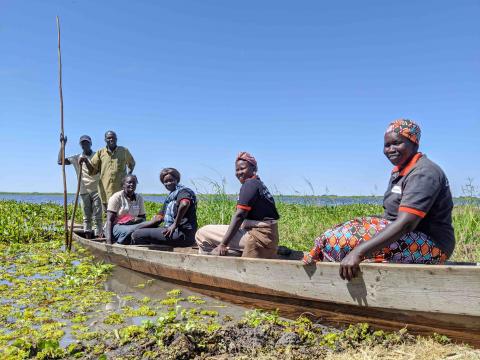
Going to a remote village in Renk County in South Sudan will take you a day on foot and a boat ride crossing the crocodile-infested Nile River. This does not count enduring the weather, which is very hot at this time, and the unforeseen dangers walking in the bush.
These are the daunting challenges that World Vision staff and 52 health workers face as they roll-out the COVID-19 prevention measures. Ahead of the pandemic, these workers have been toiling quietly addressing the health needs of their own people. Now, they all have to rise to this new challenge.
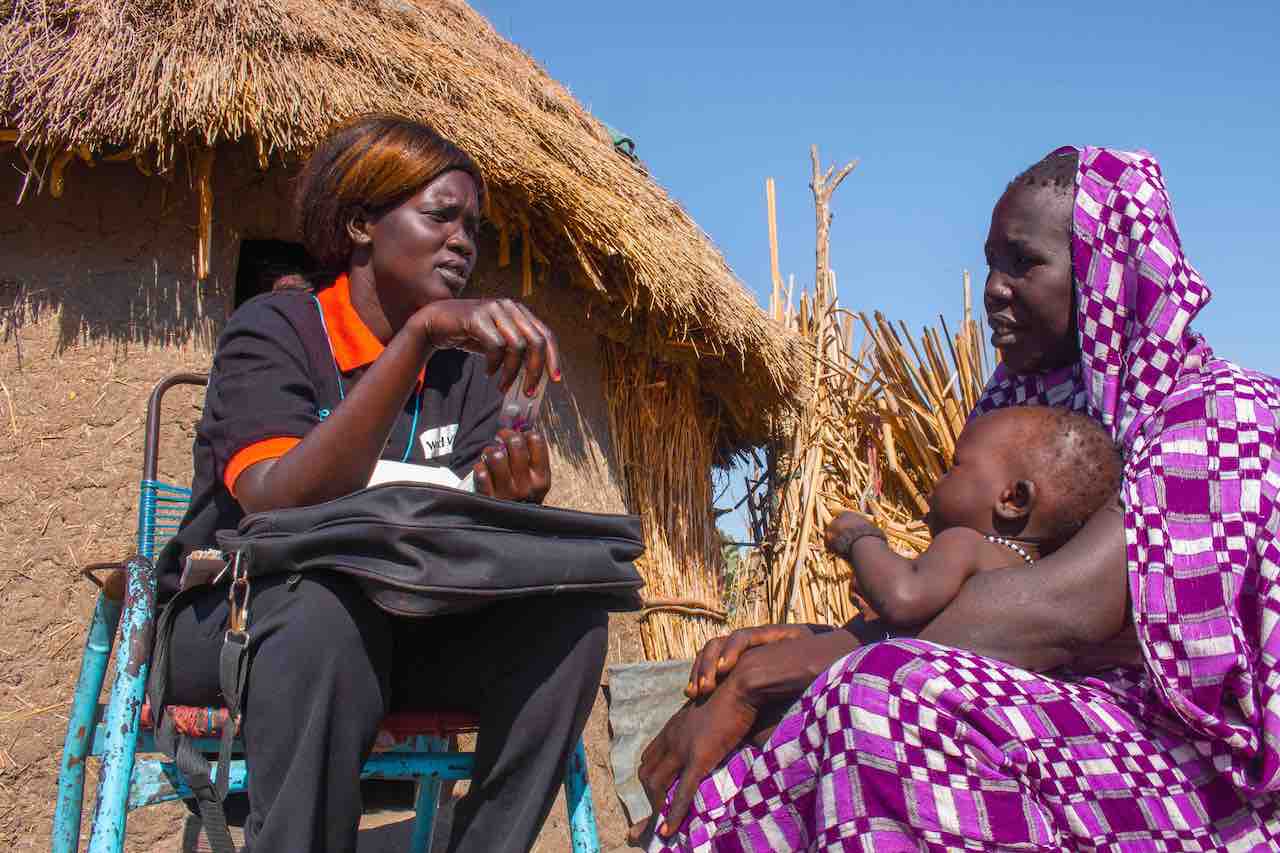
This time, they do not gather the people in one place but need to be resourceful by using the sound system to keep a safe distance, move around and relay the information to as many and as fast as possible. Located in the border with Sudan, Renk County in Upper Nile State's second-biggest county with an estimated population of over 130,000.
Read: Deborah's story
Fifteen handwashing facilities, composed of 200-liter containers and soap bars, were installed by World Vision around strategic areas of Renk County including the 10 World Vision-supported health facilities in Jalhak, Molbok, Chudedi, Geiger, Romela, Halaka, Renk, ECS, Jerbena and Abukadera; plus the Renk Prison with 50 inmates. The team monitors the water and other supplies to ensure they are available all the time.
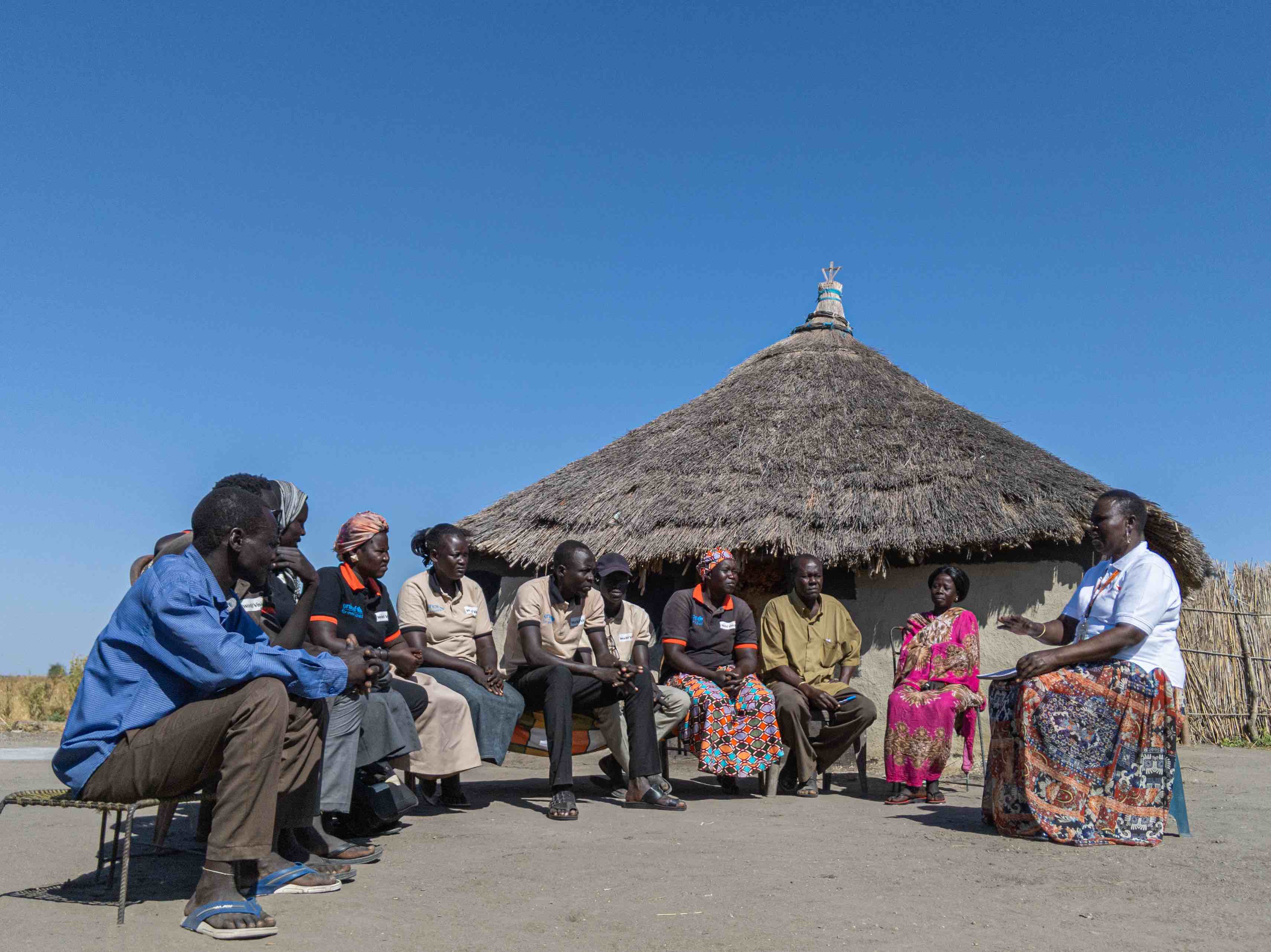
As the news reached the far-flung areas of the county, World Vision has managed to train the health workers on how to communicate the prevention measures effectively, identify what are symptoms and ensure that they themselves, and their families, observe the proper practices to serve as an example in the communities.
“In fragile contexts such as South Sudan, the COVID-19 pandemic will impact the most vulnerable with its hardest force. Communities need clean water and soap to wash their hands and keep them clean. Many consider this a luxury when it should be a necessity”, says Inos Mugabe, World Vision’s Zonal Manager in Greater Upper Nile State.
In fragile contexts such as South Sudan, the COVID-19 pandemic will impact the most vulnerable with its hardest force. Communities need clean water and soap to wash their hands and keep them clean. Many consider this a luxury when it should be a necessity.
Mugabe adds, “They need to have adequate and nutritious food to help boost their immune system so they are not compromised. In the absence of a vaccine, or treatment, we tell our communities that the best way to tackle this is to prevent, prevent and prevent by handwashing, practicing proper sanitation and hygiene, social and physical distancing.”
So far, with the intensified efforts of the health workers, an estimated 80 percent of the county’s population has been reached by the campaign. The commitment is very high as they realized the only way to save more lives is information and behavior change.
Still, it is an uphill battle for the World Vision team said Health Coordinator Rose Achan. “Many villagers believe the pandemic is too far to affect them. It took time for us to convince them that the virus can move through people and it can reach their village in no time”, she shares.
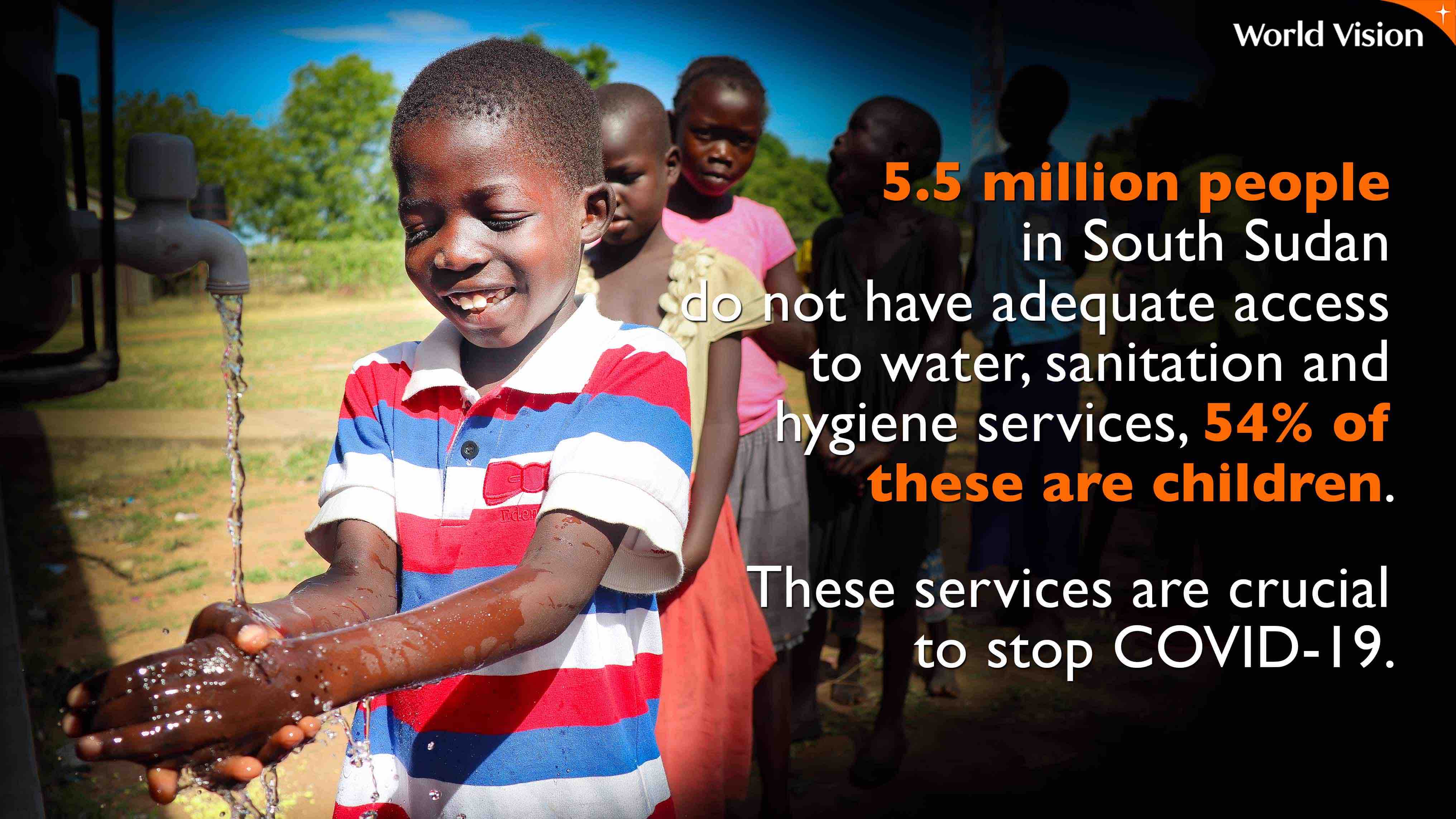
Part of the team’s strategy is to enlist the village chiefs and elders to help in making sure the people take the threats seriously, observe the prevention tips and remain on high alert. Achan adds, “The community leaders need to be part of the efforts to be able to enforce the measures. But I am proud of the courage and hard work of the team. Despite the risks, they want to be part of saving our fellow South Sudanese from COVID-19.”
Read: Rose Achan's story
A veteran health worker who has worked for over two decades in the most challenging emergencies, Achan has trained hundreds of community health workers in her lifetime around South Sudan. “We have to do our best as a people to help the most vulnerable. We cannot rest until everyone takes this virus seriously and prevent it from spreading because our healthcare system is not prepared to deal with it.”
The world will be much safer and more prepared if we invest in and support more health workers like Rose Achan, quietly working and making a difference in the lives of the most vulnerable, even the forgotten.
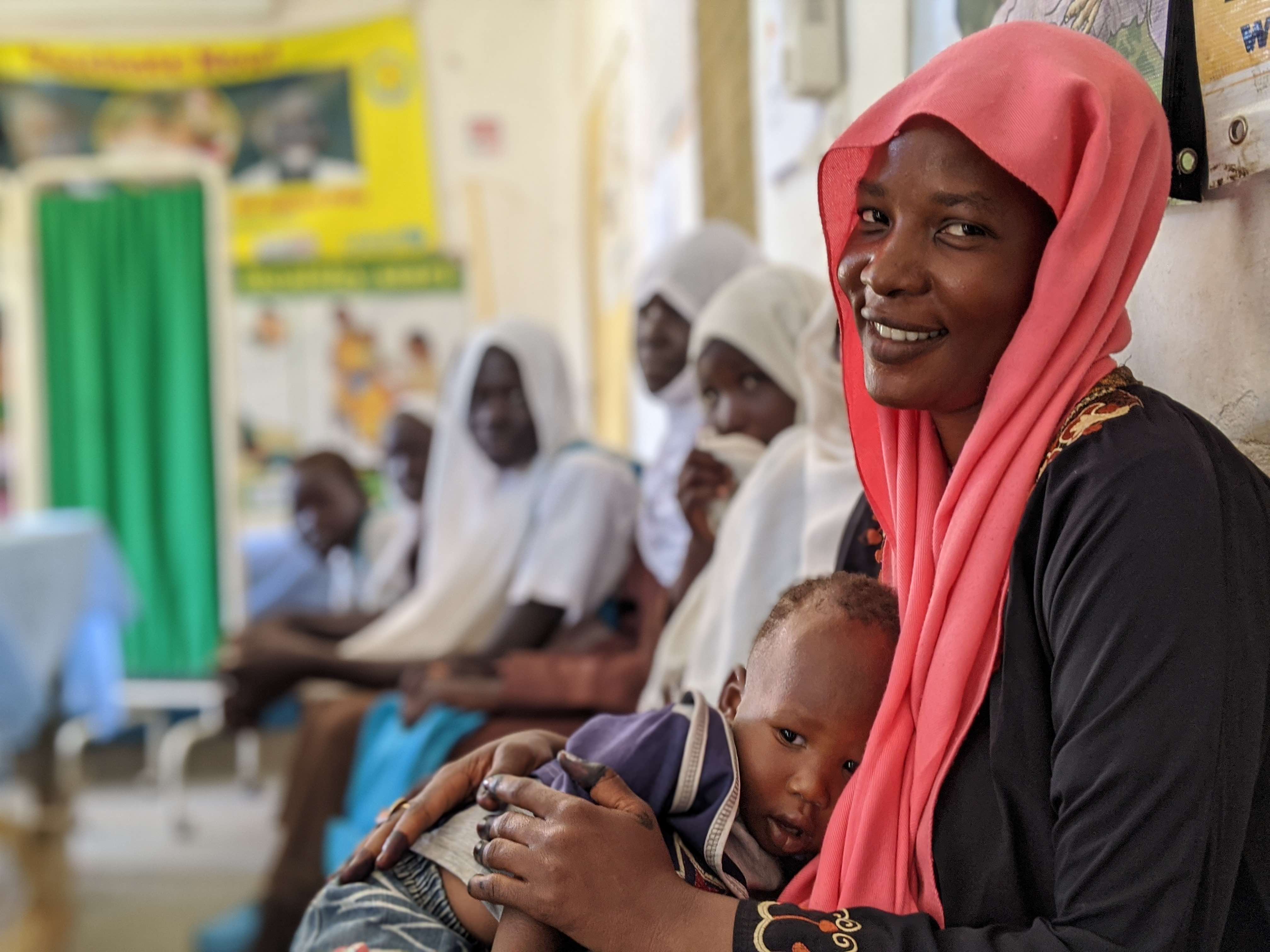
Download World Vision's COVID-19 Aftershocks Report.
Story by Cecil Laguardia, Communications Manager I Photos by Eugene Combo and Chris Lete